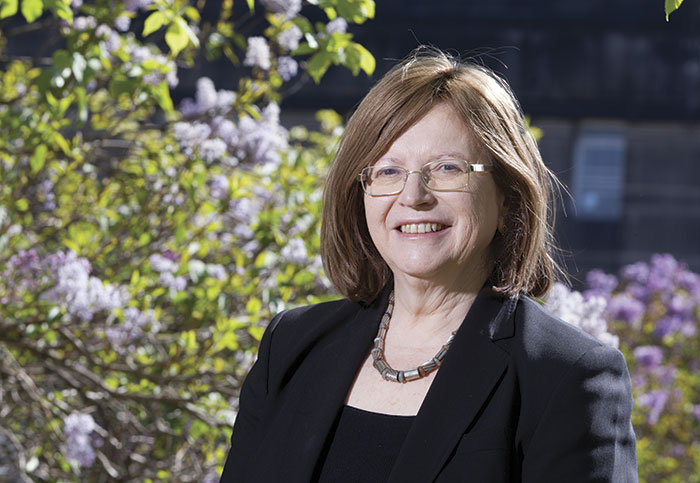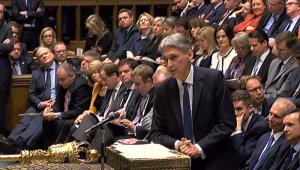
The Scottish Fiscal Commission, in its first official set of projections in December, said the Scottish economy would grow by less than 1% a year until 2022, with GDP growth at 0.7% this year rising to 0.9% in 2021, due to slow productivity growth, uncertainty over Brexit and demographic challenges.
The forecast was significantly more downbeat than that of other observers such as the EY Scottish Item Club and the Fraser of Allander Institute, both of which expected growth of over 1% this year. It was also well short of the 1.4% average growth predicted for the UK-wide economy by the Office for Budget Responsibility.
Commission chair Dame Susan Rice [pictured] told PF that, while forecasting was based on evidence, by its nature it could never be precise. “This inexact science benefits hugely from different views and different perspectives,” she said. “Our decisions and our thinking benefit from the different approaches of others.
“A good fiscal landscape is one where you have a number of bodies who are trying to do what we do. They will always have different data sources to some extent, and different people making judgments, so they are bound to be different.”
One reason for the divergence was timing, as the data on which forecasts were based were constantly changing.
Process was also a factor, she said. While the Office for Budget Responsibilitiy, for instance, started with UK-wide data and applied these to Scotland, the SFC took a more “bottom-up” approach.
“We start with Scottish numbers – what went to landfill, how many housing transactions there were – and build up a picture from Scottish data, so it’s a different lens,” she said.
The commission has also warned that slow growth in the economy would affect income tax revenues.
In a radical overhaul of income tax north of the border, the Scottish Government has announced plans to introduce a five-band system under which low earners pay less and higher earners pay more.
Rice said the SFC had considered the behavioural impact of these changes carefully, concluding that £56m of the additional £276m generated would be lost through, for example, the highest earners relocating elsewhere in the UK.
“But it’s very hard to make that judgment [as] decisions about where you live are highly personal,” she said.
She downplayed the likelihood of the income tax changes creating momentum for further fiscal divergence between Scotland and the rest of the UK.
“While taxes might change, a lot of them are quite small in terms of what they raise, so in fiscal terms Scotland is still very much tied to the UK, and there’s nothing I see that’s going to change that at this stage,” she said.
Unlike the OBR, the commission has no remit over future the sustainability of public services.
But many Scottish councils are buckling under the kind of financial strain that has seen Northamptonshire County Council forced to halt all non-statutory spending.
Rice, who made her name as the first female chief executive of a British clearing bank, stressed that all organisations are under the same pressure.
“Everything is cash-strapped – not just in the public sector – everywhere. No one ever has enough money to do what they would like to do,” she said.
“The strength of a council [is that] it is local, that it has some ability to work out how it delivers things, and a lot of our councils are very thoughtful about that.
“What we need is greater productivity alongside some innovation so that they can continue to do what they need and want to do.”


















